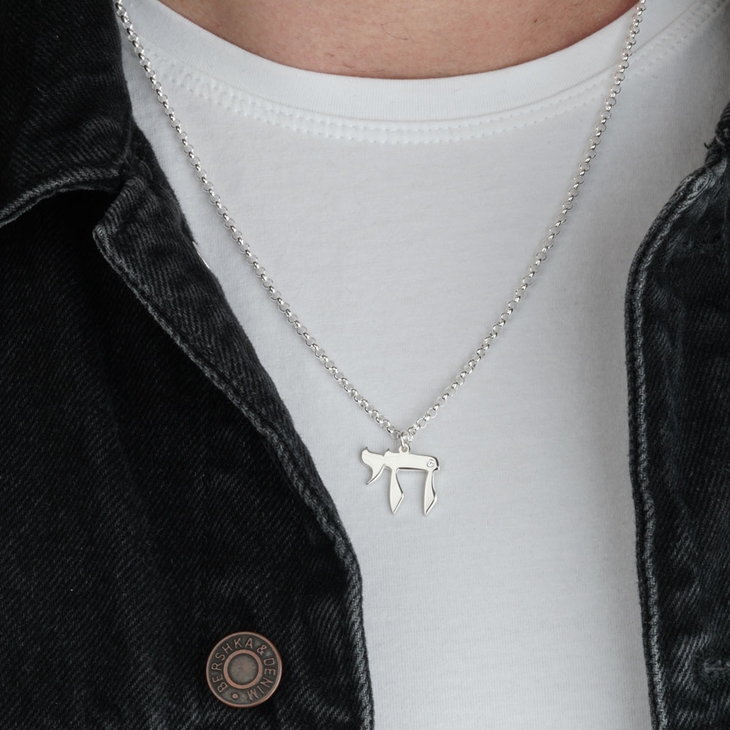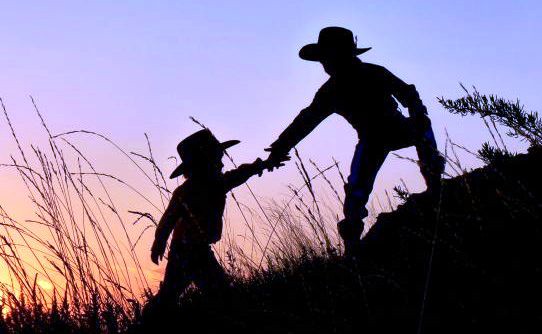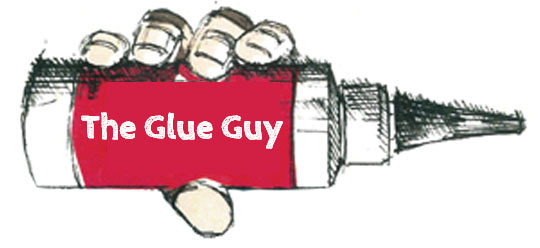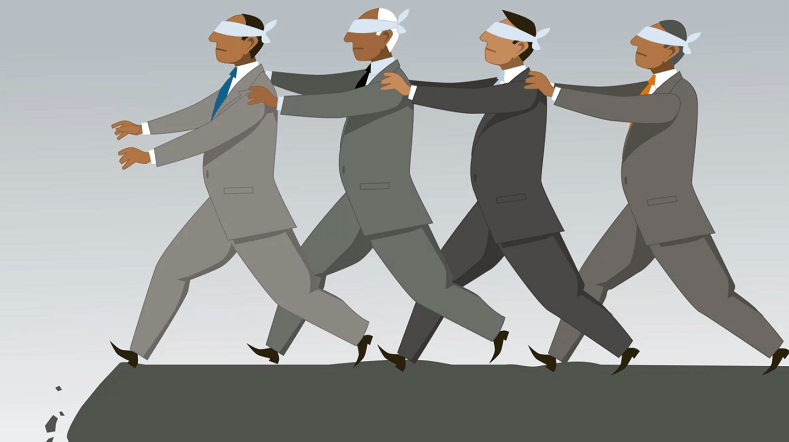August 16, 2022|י"ט אב ה' אלפים תשפ"ב Devarim 5782 - Mourning & Afternoon: The Dual Nature of Tisha B'Av
Print Article
Rabbi Moshe Greene, a Rebbe in Yeshiva Sh’or Yoshuv was once driving in Queens when his back tire when flat.
As he was waiting for AAA to arrive, a Latino man in his sixties pulled up. He introduced himself as Donny and without warning, started speaking in Yiddish.
“Are you Jewish?” Rabbi Green inquired, completely caught off guard.
Donny smiled and said, “No.”
While crouching down to examine the damaged tire, Donny explained that he was a retired NYPD cop who on numerous occasions was assigned to protect the Satmar Rebbe, Rabbi Yoel Teitlebaum zt”l.
After a few minutes of chatting, while Donny worked on the tire, he turned serious and said, “I heard you Jews used to live in Israel where you had a temple, a beautiful place where you all got together for holidays. Right?” Rabbi Green nodded.
“I also heard about two thousand years ago you were exiled because you couldn’t get along. Correct?”
Again, Rabbi Green nodded.
Donny continued. “I also heard if you guys could just get along, G-d will move you back to Jerusalem and he’ll rebuild your Temple.”
Donny than leaned toward Rabbi Green, looked him straight in the eye and asked: “So if you guys are so smart, with your Yiddeshe Kop how come in two thousand years you haven’t figured out how to get along?”
Rabbi Green had no answer.
Tisha B’Av contains within it one aspect that is somewhat unique among other special days on the Jewish calendar.
On Pesach, you can’t eat chametz for the entirety of the yom tov. Day and Night. On Shabbos, one cannot do melacha the entire day. And the list goes on.
Yet, when it comes to Tisha B’Av we have this interesting concept that after chatzos, after mid-day on the day itself, while there are still 7 hours left in the day, some of our practices change. Some even end.
For example:
1) The Rama writes in Shulchan Aruch that one does not go to work in the morning of Tisha B’Av, but those restrictions are somewhat relaxed after chatzos.
2) Tefillin is not worn in the morning (like aveil on 1st day), but we do put it on in afternoon.
3) Maybe most famously, we sit on the floor in the evening and morning of Tisha B’Av, but after chatzos one is allowed to sit on a regular chair.
4) A Bris Mila only performed in the afternoon of Tisha B’Av, not in the morning.
5) We even dim the lights in the shul and remove the paroches, and then replace them in the afternoon.
What is this all about? And what does it teach us about the day itself?
The Brisker Rav, Rav Yiztchak Zev Soloveitchik, once explained this phenomenon as follows:
If we would look at that which we don’t do on Tisha B’Av, how would you define the day?
On the one hand, we don’t wear leather shoes, we sit on the ground, we don’t bathe. These are all aspects of Aveilus. We look like someone who is sitting shiva, rachmana l’tzlan. At the same time, we don’t eat and drink, we daven, we lain. These are not aspects of aveilus, but rather aspects of a Taanis, a fast day.
So which one is it? Is Tisha B’Av a day of Aveilus or a day of Taanis?
Answers the Brisker Rav, it’s both.
But how can it be both? We sit shiva only once we have lost our loved one. Once they’re not coming back. All is lost. The entire goal of a fast day, as the Rambam writes so eloquently in Hilchos Taaniyos, is NOT to refrain from food and drink. Rather, it is there to inspire us to act, to do teshuva, to see how we can grow and change. But that can only work if there is hope for the future?!
So, says the Brisker Rav, now you can understand the unique nature of Tisha B’Av, and why there is a difference between the first half of the day, and the second half.
The evening and morning of Tisha B’Av are about aveilus. We sit on the floor, we read Eicha, we read Kinnos, we sit in the sad. We recognize that the tragedies we have experienced have been horrific. And we even ask EICHA! How could it happen. We learn to appreciate that which we have lost.
And to emphasize the aveilus, we do what aveilim do: We sit on the floor, we don’t wear tefillin, and we don’t go to work.
However, as opposed to regular aveilus which takes place only when the loss is PERMANENT, we are mourning a Beis HaMikdash, a loss which CAN BE RESTORED.
So after chatzos, we transition out of full aveilus, and we shift into a Taanis, a fast day. A day where we no longer simply cry EICHA, How could you do this TO US, Gd. We now ask ourselves, “what can WE do to get out of this!?”
And to signify this change, we shift some of our practices:
- We get up off the ground
- We put on tefillin, the sign of our unique relationship with HKBH, as the gemara says that in our tefillin it says “Shema Yisrael” and in Hashem’s tefllin it says, “Mi K’Amcha Yisrael Goy Echad Ba’Aretz” Who is like My People Yisrael, who are unique in the world!
- We lain the usual leining for a public fast day.
We stop wallowing in the sadness and begin the process of reclaiming our greatness as a people.
And this dual element of the day is NOT contradictory. It’s actually quite healthy. As Elisabeth Kubler-Ross writes in what was later termed the Stages of Grief, when something terrible happens to us, when we suffer a loss, we can’t jump straight into learning life lessons. We first have to acknowledge the pain. We have to allow ourselves to experience the sadness.
It is only after we have processed that sadness and anger that we become able to eventually reach the stage of acceptance, when we can realize what has happened to us and become ready to grow from it. To be ready to even be changed BY IT.
So how do we become changed by it?
I am now in the last semester of my Masters in Social Work training, and this week I was sitting in a class on working with children in therapy, and we were discussing how when a child comes in with a presenting problem, it is the job of the therapist to not fall into the trap of seeing the child just based on his or her behavior. Rather, it is critical to look at the entire picture of the child, from a biological, psychological, and social perspective. And one element of understanding a child’s biological makeup is to try to uncover his or her temperament.
- Is the child adaptable or more rigid? Some people are more naturally flexible. Others are more rigid.
- Is the child naturally quick to warm up or more cautious?
- Is she by nature more optimistic or more of a glass half-empty personality?
There is of course much more to say on this topic, but as the conversation continued, I began to think about how gaining a better understanding of human development, can help us feel less frustrated and angry with others. Less judgmental and more compassionate.
This isn’t to say that people aren’t responsible for their behavior because they were born that way. What I am trying to say is that when we choose not to start with judgment, but instead to start with CURIOUSITY about all of the complexities that make someone who they are, it might allow us the space to find compassion and empathy, or at the very least, allow us to harbor less resentment – which is probably better for our own mental health too.
So, yes, we should spend some time on Tisha B’Av evening and morning experiencing the aveilus of Yerushalayim. We should do our best to tap into the SADNESS, the loss, the absolute nightmare that galus has brought us.
However, as morning turns to afternoon, and we get up from the floor, we should try to find space to ask ourselves, NOT why did Hashem do this to me, but what does Hashem WANT ME TO DO? How can I contribute to less animosity, less judgment, and more understanding of other members of my people. Because when we do, we won’t only bring more positivity to our lives, we will be sewing the seeds of a brighter future for us all.




